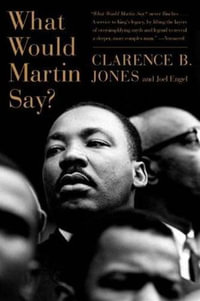Booktopia has been placed into Voluntary Administration. Orders have been temporarily suspended, whilst the process for the recapitalisation of Booktopia and/or sale of its business is completed, following which services may be re-established. All enquiries from creditors, including customers with outstanding gift cards and orders and placed prior to 3 July 2024, please visit https://www.mcgrathnicol.com/creditors/booktopia-group/

Mexican Inclusion
The Origins of Anti-Discrimination Policy in Texas and the Southwest
By: Matthew Gritter
eBook | 1 September 2012
At a Glance
eBook
RRP $42.89
$34.99
18%OFF
Instant Digital Delivery to your Booktopia Reader App
ISBN: 9781603448130
ISBN-10: 1603448136
Published: 1st September 2012
Format: ePUB
Language: English
Number of Pages: 176
Publisher: Texas A&M University Press
You Can Find This eBook In
This product is categorised by
- Non-FictionPolitics & GovernmentInternational Relations
- Non-FictionIndustry & Industrial StudiesIndustrial Relations, Health & SafetyIndustrial Relations
- Non-FictionSociety & CultureSocial Issues & ProcessesMigration, Immigration & Emigration
- Non-FictionSociety & CultureSocial Issues & ProcessesSocial Discrimination & Inequality
- Non-FictionSociety & CultureSocial GroupsEthnic Studies
- Non-FictionEconomics
























